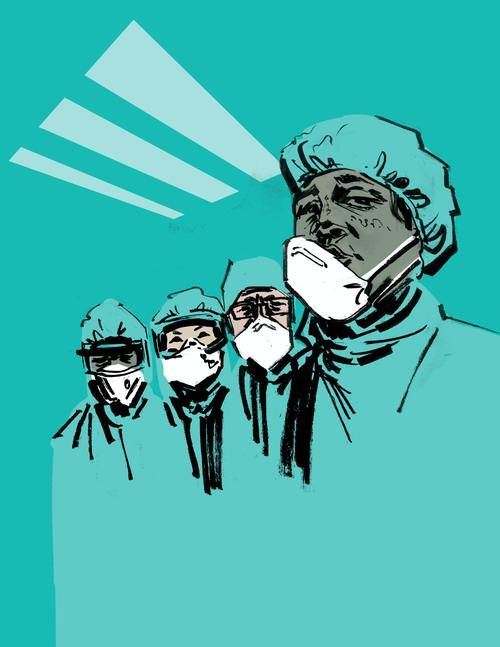Scuba Diving and Factor V Leiden gene mutation

I want to get my open-water certification, but I have Factor V and need a doctor to sign my medical form.
The goal isn’t to find a physician to sign off on your ability to dive but rather to objectively determine whether your medical history, Factor V in your case, is compatible with diving.
Many health-care providers don’t fully understand how much compressed gas diving changes an individual’s physiology; those physiological changes affect almost all body systems.
Diving has additional considerations that aren’t an issue for land-based sports. Aquatic activities
can be inherently dehydrating, which when combined with altered coagulation creates a complex question that is difficult to answer. No specific studies have attempted to quantify the risks associated withdiving by hypercoagulable individualsor how to address those risks.
Factor V Leiden is a gene mutation that increases an individual’s risk of developing abnormal blood clots (thrombophilia). These blood clots typically form in the larger blood vessels of the legs, referred to as deep vein thrombosis (DVT). Blood clots can travel through the blood vessels and lodge in the lungs (pulmonary embolism), causing shortness of breath, chest pain and
even death.
Physicians prescribe anticoagulant medication to reduce the risk of blood clots. Separate from the underlying diagnosis are the risks associated with anticoagulants and diving, specifically the higher bleeding risk in closed spaces such as the ears and sinuses. There is also the theoretical concern of worsening a serious DCS event with an additional hemorrhage risk that might adversely affect these central nervous system lesions.
Individuals with the Factor V gene mutation are at an increased risk for developing Factor V
Leiden thrombophilia, but most dive medicine physicians agree that those who are completely
asymptomatic with no history of clots can be screened individually and generally provided
clearance to dive, barring any other unrelated issues. People taking anticoagulants, however,
generally should not dive. Your hematologist can contact us for a consultation.
— Lana P. Sorrell, MBA, EMT, DMT
The goal isn’t to find a physician to sign off on your ability to dive but rather to objectively determine whether your medical history, Factor V in your case, is compatible with diving.
Many health-care providers don’t fully understand how much compressed gas diving changes an individual’s physiology; those physiological changes affect almost all body systems.
Diving has additional considerations that aren’t an issue for land-based sports. Aquatic activities
can be inherently dehydrating, which when combined with altered coagulation creates a complex question that is difficult to answer. No specific studies have attempted to quantify the risks associated withdiving by hypercoagulable individualsor how to address those risks.
Factor V Leiden is a gene mutation that increases an individual’s risk of developing abnormal blood clots (thrombophilia). These blood clots typically form in the larger blood vessels of the legs, referred to as deep vein thrombosis (DVT). Blood clots can travel through the blood vessels and lodge in the lungs (pulmonary embolism), causing shortness of breath, chest pain and
even death.
Physicians prescribe anticoagulant medication to reduce the risk of blood clots. Separate from the underlying diagnosis are the risks associated with anticoagulants and diving, specifically the higher bleeding risk in closed spaces such as the ears and sinuses. There is also the theoretical concern of worsening a serious DCS event with an additional hemorrhage risk that might adversely affect these central nervous system lesions.
Individuals with the Factor V gene mutation are at an increased risk for developing Factor V
Leiden thrombophilia, but most dive medicine physicians agree that those who are completely
asymptomatic with no history of clots can be screened individually and generally provided
clearance to dive, barring any other unrelated issues. People taking anticoagulants, however,
generally should not dive. Your hematologist can contact us for a consultation.
— Lana P. Sorrell, MBA, EMT, DMT
Posted in Alert Diver Fall Editions, Alert Diver Winter Editions, Dive Safety FAQ
Posted in Factor V Leiden, Physiology, Dive Medical, Dive Medical Form
Posted in Factor V Leiden, Physiology, Dive Medical, Dive Medical Form
Categories
2025
2024
February
March
April
May
October
My name is Rosanne… DAN was there for me?My name is Pam… DAN was there for me?My name is Nadia… DAN was there for me?My name is Morgan… DAN was there for me?My name is Mark… DAN was there for me?My name is Julika… DAN was there for me?My name is James Lewis… DAN was there for me?My name is Jack… DAN was there for me?My name is Mrs. Du Toit… DAN was there for me?My name is Sean… DAN was there for me?My name is Clayton… DAN was there for me?My name is Claire… DAN was there for me?My name is Lauren… DAN was there for me?My name is Amos… DAN was there for me?My name is Kelly… DAN was there for me?Get to Know DAN Instructor: Mauro JijeGet to know DAN Instructor: Sinda da GraçaGet to know DAN Instructor: JP BarnardGet to know DAN instructor: Gregory DriesselGet to know DAN instructor Trainer: Christo van JaarsveldGet to Know DAN Instructor: Beto Vambiane
November
Get to know DAN Instructor: Dylan BowlesGet to know DAN instructor: Ryan CapazorioGet to know DAN Instructor: Tyrone LubbeGet to know DAN Instructor: Caitlyn MonahanScience Saves SharksSafety AngelsDiving Anilao with Adam SokolskiUnderstanding Dive Equipment RegulationsDiving With A PFOUnderwater NavigationFinding My PassionDiving Deep with DSLRDebunking Freediving MythsImmersion Pulmonary OedemaSwimmer's EarMEMBER PROFILE: RAY DALIOAdventure Auntie: Yvette OosthuizenClean Our OceansWhat to Look for in a Dive Boat
2023
January
March
Terrific Freedive ModeKaboom!....The Big Oxygen Safety IssueScuba Nudi ClothingThe Benefits of Being BaldDive into Freedive InstructionCape Marine Research and Diver DevelopmentThe Inhaca Ocean Alliance.“LIGHTS, Film, Action!”Demo DiversSpecial Forces DiverWhat Dive Computers Don\'t Know | PART 2Toughing It Out Is Dangerous
April
